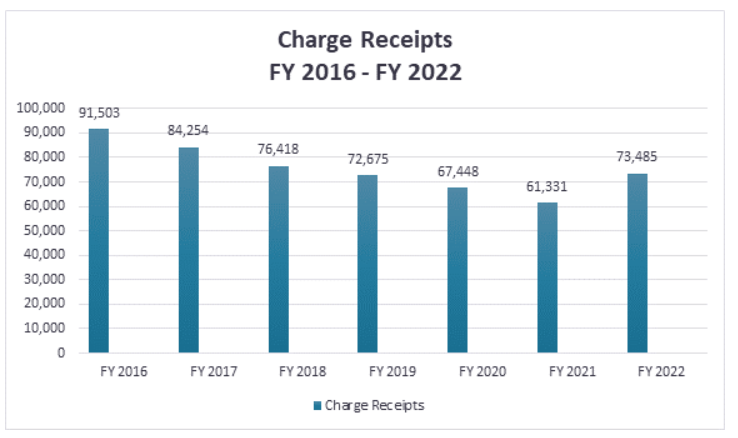
EEOC’s 20% backlog of discrimination charges ‘alarming’ to GOP House lawmakers
House GOP lawmakers pressed EEOC Chairwoman Charlotte Burrows for answers on the agency's 20% backlog of discrimination charges and missing details in the agency's...
A growing backlog of discrimination charges that employees filed with the Equal Employment Opportunity Commission is gaining criticism from Republican leaders on the House Education and Workforce Committee.
Rep. Virginia Foxx (R-N.C.), the committee’s chairwoman, along with Rep. Kevin Kiley (R-Calif.), chairman of the Subcommittee on Workforce Protections, pressed EEOC Chairwoman Charlotte Burrows for answers on the current 20% backlog of charges from employees. The percentage spiked during the COVID-19 pandemic.
In particular, EEOC’s “subpar performance” and “lack of transparency” are signs the agency’s services are worsening, Foxx and Kiley said Thursday in a letter addressed to Burrows, obtained by Federal News Network.
“The committee has a longstanding interest in the charge backlog because individuals who have filed discrimination complaints with EEOC deserve to have them investigated and resolved expeditiously,” the lawmakers said.
The lawmakers added that they were “alarmed” by the total number of cases in EEOC’s charge backlog, which rose from 42,811 to 51,399 pending charges between fiscal 2021 and 2022.
Individual employees can file charges of discrimination with EEOC when claiming that an employer engaged in some form of discrimination in the workplace. EEOC then has authority to investigate whether there is reasonable cause to believe discrimination occurred. On average, it takes EEOC about 10 months to resolve a charge that an employee files, according to the agency’s website.
Notably, the now 20% charge backlog aligns with the percentage increase the agency saw in the number of charges filed overall, said Victor Chen, EEOC’s communications director.
Specifically, in fiscal 2022, EEOC received 73,485 new discrimination charges, an increase of nearly 20% compared to the previous fiscal year. The pandemic increased demand and workload for EEOC’s workforce, Chen told Federal News Network.

And discrimination charges aren’t the only area where EEOC employees saw increasing workloads. During fiscal 2022, the agency saw an 18.8% increase in phone calls, a 7.5% increase in American Sign Language (ASL) videophone line calls, a 32% increase in emails and a 26% increase in in-person inquiries in field offices.
“The agency saw increased demand for services from the American people as the country emerged from the pandemic,” Chen said.
EEOC’s field offices have previously received criticism from Foxx and other GOP lawmakers, who pushed the agency to return employees to in-person work after the COVID-19 pandemic. But EEOC’s re-entry plans last spring also gained significant pushback from the American Federation of Government Employees, the union representing EEOC field office employees. AFGE officials have said telework during the pandemic was largely successful for the agency’s frontline workforce.
Along with concerns about the charge backlog, Foxx and Kiley raised additional frustrations about the Commission’s latest performance report for fiscal 2022, saying that it lacked details normally contained in the annual report. Typically, EEOC’s annual report has included a breakdown of the different types of discrimination charges that the agency receives each year, but the 2022 performance report did not go into that level of detail, the lawmakers said.
“We are particularly concerned that EEOC has failed to post data on the types of discrimination charges filed with the agency in a timely manner,” the lawmakers said in the letter to Burrows.
But Chen said a change in EEOC’s charge management systems last year has led to the delay in providing the more granular information, which is typically published each January.
“We have been working to ensure that the more detailed data is accurate,” Chen said. “The detailed charge data is undergoing final review for compliance with our statutory confidentiality obligations and we expect it to be released soon.”
The committee leaders requested information from EEOC by June 2 about the cause of the delay in posting more detailed charge information, the cause of the backlog and plans to correct the issues for fiscal 2023 and 2024.
Copyright © 2024 Federal News Network. All rights reserved. This website is not intended for users located within the European Economic Area.
Drew Friedman is a workforce, pay and benefits reporter for Federal News Network.
Follow @dfriedmanWFED





